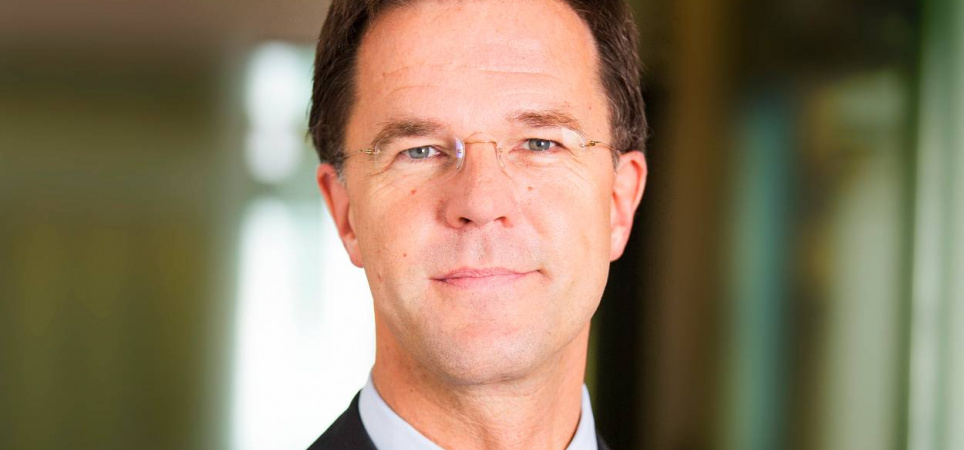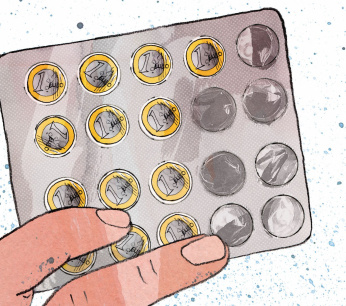Coalition agreement: most important points at a glance
The new cabinet of VVD, CDA, D66 and Christenunie presented a coalition agreement this afternoon with 1,5 billion euros in structural investments in education. But there is a catch in the extra resources for teachers' salaries and workload reduction in primary education.

Image: Arenda Oomen / Rijksoverheid
'Vtrust in the future ', is the title of the coalition agreement. For education, the new cabinet has the ambition to combat inequality of opportunity, to stimulate talent and to provide good teachers with a strong position.
In the agreement, the cabinet states that the outstanding deficit in the OCW budget, which the outgoing cabinet leaves behind, will be reversed. It is not yet entirely clear how this will happen, but the cabinet wants to focus on 'more efficient education' and expects to be able to save 183 million euros structurally within the budget.
What are the plans of the new cabinet per education sector? An overview.
Primary school
The 270 million euros for improving teachers' salaries is presented in the coalition agreement as' modernization collective labor agreement for primary education '. The cabinet links the investment in teachers' salaries directly to the lowering of non-statutory schemes. It is reminiscent of the National Education Agreement from 2013 (which by the AOb not signed). The cabinet also attached conditions to additional investments.
The cabinet links the investment in teachers' salaries directly to the lowering of non-statutory schemes.
On the eve of the national strike in Zuiderpark in The Hague, the forming parties leaked the message that 500 million euros would be invested in reducing the workload in primary education. 'Task relief can be achieved by appointing janitors and other educational support staff and by reducing the number of classes', according to the coalition agreement. But the facts are now somewhat different. Structurally, 450 million euros has been reserved, but that includes a small school allowance for a 'multiform school supply' of 20 million. Only in 2021, the last year of the coalition, the 430 million euros will be used to reduce workload. Next year there will be 10 million euros in the budget. That amount increases step by step via 175 million (2019) and 325 million (2020).
Appropriate education will be continued. There will be independent supervision of the partnerships. Now that supervision is exercised by the school boards involved in the partnership. The cabinet will also investigate how parents can gain more say thanks to a legal right to learn of children.
Temporary contracts for substitute workers who replace sick teachers are excluded from the chain provision in the Work and Security Act.
The merger test in primary education will disappear. In secondary education, the merger test will be scrapped for shrinkage problems.
Participation councils in primary and secondary education are given the right of consent for the main aspects of the budget.
Secondary education
The current math test as part of the pass / fail scheme will be abolished. Arithmetic must be an integral part of the exams no later than the 2019-2020 school year. In MBO, the profession will be integrated in the professional subjects in the future.
The cabinet wants children all over the Netherlands to have the opportunity to follow an extended first year, whereby the selection for further education is postponed. To make that happen, schools must cooperate more. The coalition agreement also states that the cabinet wants to enable more customization in education and will investigate whether students with a lower diploma can be admitted to a higher level of further education if they have taken a number of subjects at that higher level.
The cabinet wants children all over the Netherlands to have the opportunity to follow an extended first year, whereby the selection for further education is postponed. To make that happen, schools must cooperate more.
The budget for the educational disadvantage policy will be increased by 15 million euros per year. That amount is probably on top of the money that will be released because arrears are calculated in a new way from the 2019-2020 school year.
The cabinet is making 100 million euros available for six months of voluntary social service. Pupils receive a certificate for this with their diploma, which in the future will be considered 'an advantage' for government applications.
Under the heading of culture and democratic awareness, 80 million euros will be made available on a structural basis, partly intended for education. 'That is why children learn the Wilhelmus at school, including its context. We also make it possible for all children to visit the Rijksmuseum and our parliament during their school days.'
Secondary MBO education
The new cabinet wants to focus on 'powerful vocational education', the parties write in the coalition agreement. The cabinet wants to make agreements to improve the flow from VMBO to MBO and from MBO to HBO. Pupils must also be given the opportunity to complete level 1 or 2 within VMBO. The new cabinet also wants to encourage students from practical education to transfer to MBO.
The requirements as to whether an MBO education is well suited to the professional field and the regional labor market will be tightened. If programs do not adequately prepare students for the labor market, action can be taken.
Citizenship should receive more attention within MBO.
Green education will be funded in the same way as regular education. Green education is currently still under the Ministry of Economic Affairs, but this is moving to the Ministry of Education. The government is reversing the previous cut of 10 million euros.
Higher vocational education
In higher professional education, students only have to pay half, 1000 euros, of the tuition fees in the first year of study from the 2018/2019 school year. Students who are going to do an (academic) teacher training program pay half of the tuition fees for the first two years. In this way, the cabinet wants to make teacher training courses extra attractive.
There will also be specializations in teacher training programs in which students can focus on younger and older (up to and including lower secondary vocational education) children and on subject-oriented teaching in vocational education. The four parties hope this will make the teaching profession more attractive.
D66 reports in a press release that selection at the gate is being restricted in higher education. 'Anyone who wants to should be able to study and do the training that suits them,' says D66.
The cabinet will also monitor the added value of English-taught programs more strictly.
There will be quality agreements in higher education. The government links the revenues from the introduction of the loan system to this. Schools may draw up their own objectives and indicators, but these must fit within the 'Strategic Agenda for Higher Education'. If schools do not comply with the agreements, they receive less money.
Also read the reaction of AObchairman Liesbeth Verheggen on the coalition agreement.


